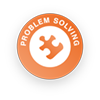
Why You 100% Need To Learn Code
Include this article in your Skills Builder Journal. It could help you develop... ![]()

It’s National Coding Week so we invited Mark, Raspberry Pi’s Youth Programmes Manager to write a piece for us explaining why everyone should have at least a basic understanding of the world of coding. Keep reading to find out why...
Whenever I'm running a workshop or event, people often ask me, “Why should I learn to code?”. It’s often a tricky question to answer because for those who know about coding, the question itself is similar to asking someone, “Why should I learn to read?”.
While learning to code won’t make you a super-hacker (without dedicated focus and determination), it will give you a much better understanding of how machines process information and do all that magic. Being able to break problems down like a computer scientist into discrete, individual parts and then create solutions systematically for each part is a hugely beneficial skill. Likewise, being able to design, test, iterate and improve your own thought processes is an incredibly useful skill on every level (even a personal one).
By its nature, learning to code provides experience in both of these powerful methods of problem-solving that can level-up your life. Knowing how the things around you work is incredibly powerful – knowing what really makes a password strong for example, is a huge life hack for anyone who has never seen how a machine processes a password.

We live in an increasingly digital age. Take a second and consider how many times you have interacted with some form of digital technology since you woke up...
Checked your Insta and Snapchat?! Listened to a podcast or music? Read Reddit on the train? Watched something on YouTube, Netflix or iPlayer? Paid for something with contactless card or Smart Pay? Wear a Fitbit or smart watch? Maybe you’ve asked your home assistant for weather or news updates? Or checked your bank balance?
Everything on this list requires digital technology to operate, from the creator of the service, app or content, through the service providers and network infrastructure, all the way to your eyeballs and ears at the other end. It takes thousands of hours of other people’s hard work for you to be able to watch cat videos on the toilet! Planning, design, coding, editing, marketing, bug-fixing, security testing, user testing, network maintenance… the list goes on. And the amount of jobs that will be linked to technology in some way over the next decade is only going to increase – will you be in the know, or on the outside?

We are living through the largest shift in industry and workforce since the Industrial Revolution of 1900. Consider the notion that there are whole teams of humans right now, all over the world, working on machine-learning projects that means the machines we have now will soon be able to create other, better machines to solve new (and old) problems.
Just as in the last Industrial Revolution, those who can control and influence the means of production will be those who are best poised to take advantage of the innovations and inventions of the new industry.

In other words, people who know some coding and digital making will be at the front of this new wave. While the last revolution required you to be rich and powerful enough to build factories and buy equipment to get that control or influence, in the Technological Revolution all you need is a good idea, a little skill with technology and the will to create something that could change the world.
And today, literally anyone can do just that! It’s a little cliche, but it’s true: Jeff Bezos (the richest man on the planet) started Amazon (the largest company in the world) alone in his garage...

And that’s what makes this industrial revolution very different – all of the means of production are already in the hands of normal people. And those people will be innovating (using the tools and platforms that already exist to continue to create new things), because they know how to use technology to empower themselves.
If Mark’s grabbed your interest with this insightful piece, you can find out more about Raspberry Pi, a UK-based charity that works to put the power of computing and digital making into the hands of people all over the world, here.




